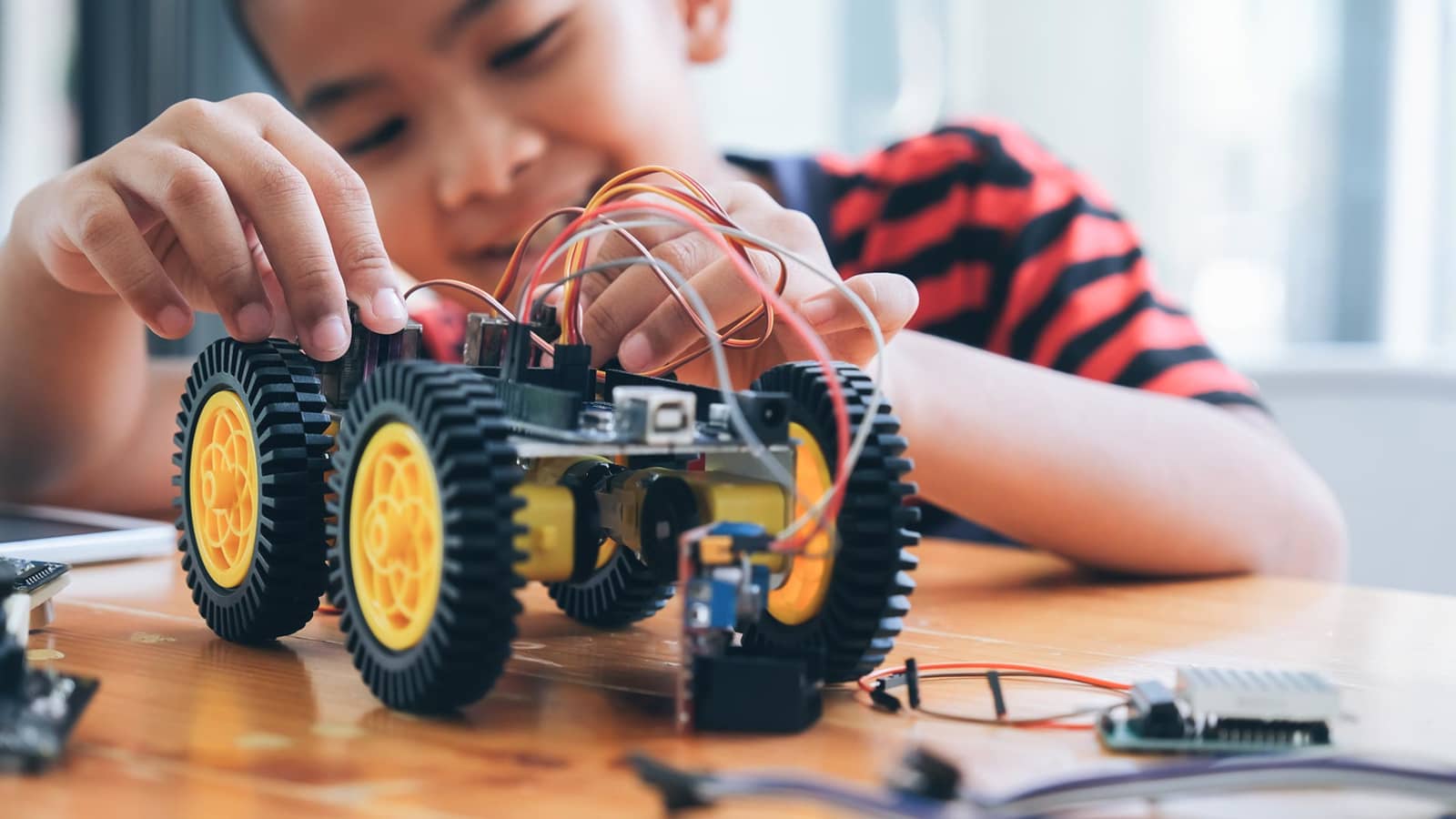Lego Education announced that in collaboration with National Instruments they will create a new product to introduce children to engineering and science. This new product is called WeDo and consists of a hadware with robotic functions and a simple graphical software for children to explore its functions while being introduced to the mechanisms of science.
The toy is intended for children aged 7 to 11 years in order to bring robotics to younger ages. According to Lego spokesperson Helle Winding, “At that age, kids don’t know they’re learning math or science. They just know you’re playing.”
WEDO allows children to build a crocodile, monkey or soccer player robot. When the simple robot is ready, kids can program it to walk or kick a ball using a simple graphical interface based on “action blocks.” The colorful blocks on their computer screen incorporate a system that allows them to direct the robots. Children can build their own models by simply dragging and dropping the blocks. By creating routes with the robot, children are introduced to the world of programming without even knowing it.
The Wedo unfortunately has limited availability and at the time difficult to get in Mexico.
Personally I decided to get an ELEGOO UNO R3 for my 10 year old nephew and it was a success in terms of awakening his curiosity about how electronics work. He managed to put together about 80% of the project on his own despite encountering a couple of problems that he could not solve immediately; thanks to these problems, I had the opportunity to tell him the general operation and gave him clues on how to reach a solution and he saw it as useful and practical knowledge. I also did not expect that after summarizing it in his school in the first few weeks he would want to make “improvements” to it.
Regardless of the company, it is very interesting this type of alliances, companies that in theory have no market relationship can combine their strengths to obtain a quality product. It would be good to see this type of collaboration more often because the advantages will always be for the consumer.



